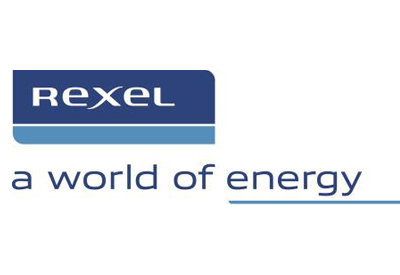What’s the Value of a Manufacturer’s Brand?

December 18, 2017
By: David Gordon
Over the past few months as we’ve sat in strategy development meetings with distributors, reviewed distributor purchasing information, and talked to manufacturers’ reps and contractors, we’ve seen a purchasing trend that is roiling the industry. The trend, which mirrors what is happening in lighting with “unfamiliar brands,” is accelerated growth and acceptance of less familiar brands for infrastructure type products (electrician supplies, boxes, fittings, etc … consumables and products that go within the wall). This then begs the questions, “What is the value of a manufacturer’s brand,” and “What are the implications for manufacturers and distributors?”
Many have seen this as driven by
- the commoditization of product and the “need for price.” There are more companies pursuing a product category than ever before (the benefit of sourcing) and, in many instances, it is extremely difficult to determine if there is any product quality difference.
- the fact that frequently contractors are focused on price and the belief that “as long as it lasts a year they don’t care,” or their customer doesn’t care about the brand.
- contractors don’t see the incremental cost benefit of a product. With contractors purchasing more than 50% of the electrical material sold in the industry, if they don’t request a brand, then distributors are free to provide a suitable offering.
- distributors seeking incremental gross margin as purchasing at a lower net cost can, if they have a disciplined pricing model, increase their profitability in excess of the branded company’s rebate (offered through the marketing group). Many of these “unfamiliar” companies do also offer a rebate, and some belong to a marketing group.
- the ease with which some of these companies do business. They frequently are not demanding (some say “arrogant”), and are strong on delivery.
- in some cases product innovation.
- distributors preferring to have at least two tiers of products in many categories — a branded line and then a “price line” to help them compete in the marketplace as frequently there can be a 10-40% price differential… and which distributor salesperson is willing to pass on an order… and the average price of a contractor quotation request continues to decline.
We’ve seen this more on the construction / contractor side of the business. The industrial side of the business is more brand focused as manufacturers interact with the end-user via their sales and marketing organization, the buyer is perceptually more concerned about quality and standardization, and products frequently are more quality-oriented and performance-driven.
Why this is happening:
- competition for contractor / customer dollars
- less brand loyalty at the sales level, some of which is due to generational change and interaction
- distributor need to compete in the marketplace to win the business
- lack of manufacturer identification of its value proposition … for its products (if any) and for “why buy from them”
- lack of manufacturer investment in building a brand, and a reason to purchase, at the contractor level
- lack of discernible product differentiation
- sales training issues at the manufacturer level as well as the distributor level (and in many cases, the distributor salesperson has too much to “learn” so therefore will default to providing to the customer what is acceptable).
- a generational issue (and here’s an interesting take from Jim Cramer on Millennials being less brand loyal. Will / is the same mentality flowing into the electrical industry as there is personnel turnover?
The issue becomes
- if you are a manufacturer whose product is not requested / known by contractors, what is the value of your brand at the distribution level? Why should they want to buy from you?
- if you are a distributor typically you’ll have a relationship with a strong brand (after all, you want to be known by the company you keep and it gives you access to a broad product offering) but you also have at least one price-oriented line that lets you compete in the marketplace. Yes there is inventory overlap, but the cost of inventory is minimal compared to the cost of losing a sale. As an example, we know one company that identified that most types of strut could be handled by a “no-name” company that had good quality at a 33% discount from a branded line. If the customer doesn’t care, can you pass up the order? Pass up the opportunity for increased profitability if you can purchase for less and only pass on 1/3 of the savings to the contractor?
Identifying what “customers” (contractors, end-users, distributor management, distributor salespeople, purchasing, your reps) think of you / what they think your value proposition is” can determine your
- channel strategy
- sales messaging
- product development
- pricing model
- distribution “program”
- value-added services
It can also be the springboard to accelerating growth. Essentially, your company roadmap.
Consider the wire and cable segment. Years ago there were many companies in the space. How many today? What was the difference? Their strategy, execution and communication of their strategy and marketing of their business. They took an undifferentiated product offering, branded their companies based on some products and service differentiation, and then have taken their “perceived” differences to grow their companies. This was the essential roadmap for Southwire and Encore, two stalwarts in the wire / cable industry. Where are the others today?
If you are a distributor, using these “unfamiliar / undifferentiated” lines to capture sales and improve profitability makes sense. A little more work, a little duplicate inventory, but that’s the job — service the customer and sell.
If you are a manufacturer, what is your brand? Is it valued?











